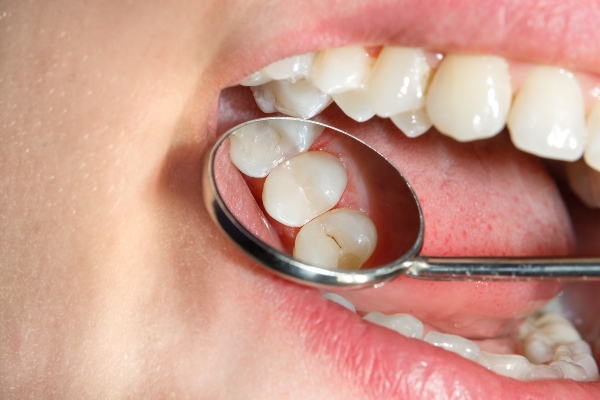Dental Fillings For Kids: Preparation For The Procedure

It is normal to be concerned if the dentist indicates the need for dental fillings for kids after performing a dental examination. Cavities are fairly prevalent among children. Cavities affect 60 to 90 percent of school-aged children, according to the World Health Organization. As a result, dental fillings for kids are common. Continue reading to find out how you can prepare for the filling procedure.
Preparing for a dental filling
The following are tips for parents who have kids that need to undergo a dental fillings procedure:
Keep a calm demeanor
If a child is concerned about undergoing dental fillings, having a nervous parent will not help matters. Therefore, parents need to stay calm and cheerful when discussing the child's next checkup, even if they are apprehensive. Children pick up on their parent's emotions, so if they detect a confident demeanor, they will be more relaxed at their first filling appointment.
Also, avoid scolding the child for having a cavity. While it is great to talk about ways the child can improve their oral hygiene to maintain good oral health, scolding or guilt-tripping a child for having cavities is never a good idea.
Discuss options with the dentist
Parents should talk to their dentist ahead of time about sedation for the child during the filling treatment. Nitrous oxide, sometimes known as "laughing gas," is frequently used to help children sit still, relieve anxiety, and lessen discomfort. Oral sedatives are also used occasionally. On the other hand, many children do not require sedation and can sit quietly and withstand the treatment without difficulty. It is very dependent on the temperament of the individual child, so make sure to discuss the options with the dentist before the treatment.
Answer questions honestly
The child will probably have a lot of questions regarding the procedure coming up. Parents should provide truthful answers as much as possible. Learning about the procedure ahead of time will help the child feel less anxious about their first filling. They need to know they will sit on the dentist's chair, probably hear some strange noises, and that the dentist will put numb part of their mouth to prevent discomfort. The child should know that their mouth may feel odd for a short time after that but that this sensation will pass.
Visit the office with a comfort item
The child needs to be as comfortable and relaxed as possible during the appointment. Parents should allow their children to dress in comfortable, loose-fitting clothing. Allowing them to bring a comfort object, such as a beloved stuffed animal or a little stress ball to clutch in his palm throughout the process, is another option.
In conclusion
Of course, the best way to deal with cavities is to avoid them in the first place. Brushing twice a day and flossing once a day will help your child develop good oral health habits on time. Every six months, they should also see the dentist for a cleaning and checkup. Please get in touch with us right away if you have any questions about dental fillings for kids.
Request an appointment here: https://www.hvkidsmiles.com or call Hudson Valley Pediatric Dentistry at (845) 363-4177 for an appointment in our Middletown office.
Check out what others are saying about our services on Yelp: Read our Yelp reviews.
Recent Posts
Tooth decay is one of those dental issues that most people will deal with at some point in their lives. Fortunately, dental sealants are a preventative treatment that can help protect teeth from decay. If you are a parent considering protecting your child’s teeth with sealants, you may be wondering about the process. This article…
If your child has recently gotten dental sealants, it is wise to get a toothbrush that cleans the teeth and does not irritate or damage the sealant. The kind of toothbrush that will remove plaque, reach all regions of your child’s mouth and be best for their oral health depends on their particular dental requirements.…
Dental sealants are a preventive treatment that can greatly benefit young children who have just had their permanent molars come through. Sealants can also benefit children with baby teeth, particularly those vulnerable to decay. The following article discusses the numerous benefits of dental sealants for children.Dental sealants for children reduce the risk of dental decay…
While most people are familiar with dental sealants as a preventative treatment for a child's teeth, it is essential to recognize their broader applications. Dental sealants can serve as a remedy for sensitive teeth or even reverse the early stages of a developing cavity. This treatment can also significantly improve the health of a tooth…


